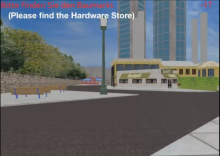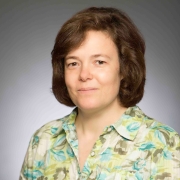Michael Kahana Leads Team That Finds Memories Are ‘Geotagged’

A team of neuroscientists from the University of Pennsylvania, Drexel University, and Freiburg University has used a video game to discover that particular brain cells encode spatial information to form “geotags” for specific memories. The geotags are activated immediately before those memories are recalled, demonstrating the way in which spatial information is incorporated into memories. It is the first direct neural evidence of the phenomenon. The study was led by Professor of Psychology Michael Kahana and published in the journal Science.
The study involved patients with epilepsy who have had electrodes implanted in their brains as part of their treatment. They were asked to play a simple computer video game in which they made deliveries to stores in a virtual city while the electrodes captured electrical activity from throughout their brains. Participants were only instructed where their next stop was, without being told what they were delivering. After they reached their destination, the game would reveal the item that had been delivered, and then give the next stop. After 12 deliveries, participants were asked to remember and name as many of the items they had delivered as they could, in the order they came to mind.
By asking participants to recall the items they delivered (episodic memories) instead of the locations of the stores they visited (spacial memories), the researchers could test whether their spatial memory systems were being activated even when episodic memories were being accessed. Using the brain recordings generated while the participants navigated the city, the researchers used specific neurons—“place cells”—in the hippocampus and neighboring region to develop a neural map that corresponded to the city’s layout. The researchers then found that the neurons associated with a particular region of the map activated immediately before a participant named the item that was delivered to a store in that region.
Jonathan F. Miller, Alec Solway, Max Merkow and Sean M. Polyn, all members of Kahana’s lab, and Markus Neufang, Armin Brandt, Michael Trippel, Irina Mader and Stefan Hefft, all members of Freiburg University, contributed to the study. The Freiburg team was lead by professor Andreas Schulze-Bonhage. They also collaborated with Drexel University's Joshua Jacobs.
The research was supported by the U.S. National Institutes of Health, the German Research Foundation, and Germany’s Federal Ministry of Education and Research.
Read the full story here.





